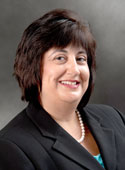By Angela Rocheleau
It may be a topic you have already thought about or perhaps discussed with family members. The start of a new year is a good time to plan out how you choose to deal with minimizing the risk for family elders
 How are your aging parents or relatives doing these days? Is your mom still going to the grocery with her cane, and how is she getting those groceries into the house? Are you worried about your parents being alone in their home? What if your dad was taking a walk and became confused and lost — would someone assist him? Suppose your parents or grandparents are cooking for themselves; will they be careful with the stove? Will they remember to turn it off when they are done?
How are your aging parents or relatives doing these days? Is your mom still going to the grocery with her cane, and how is she getting those groceries into the house? Are you worried about your parents being alone in their home? What if your dad was taking a walk and became confused and lost — would someone assist him? Suppose your parents or grandparents are cooking for themselves; will they be careful with the stove? Will they remember to turn it off when they are done?
What if your mother has a form of dementia and poor judgment about cooking safely? You need to get involved right away. Find a meal delivery program or be sure there are things she can heat in the microwave or eat cold. If cooking is her passion, find recipes that don’t involve a flame. Or better still — get a home health aide trained to deal with dementia or memory impairment. He or she will prepare nutritional meals for her and help with household chores.
These are very real concerns for all of us as we watch our relatives age. I recall visiting my 86-year-old uncle once and noticing he had a space heater near the bed. I asked him if he was turning it off periodically. He replied with a chuckle, “of course I am.” On closer inspection I noticed the fan was blocked with so much dust it would easily be combustible. Would he ever have noticed it himself in time to prevent a fire?
If your parent is mentally competent, then it’s a very different story. Visit often and observe. Is she or he really at any risk? What, exactly, is the danger? These were just a few examples of potential situations. What actions should you take immediately to reduce the risk?
Again, you may want to consider help in the home with a trained certified home health aide, even for just a few hours a day. But, the basic challenge remains in spite of all precautions. How do you tactfully tell your aging relatives that they need help and care and that it is time to step up and take responsibility?
Talk with them. Tell him or her that it’s great that they are so independent and active, and that you hope they can remain independent for as long as possible. Be proactive and tell them about your concerns and see what they think. Listen and discuss ideas for reducing the risk. Ask what they plan to do when they really can no longer cook for themselves or take care of their home.
At the end of the day, it’s important for all of us to realize that while we should discuss the risks and options, we are not their parents or their babysitters. Competent senior adults have the right to take risks and make decisions.
Our role as their children or caregivers is to support their independence, minimize any risk and ensure their safety in any way we can.
Angela Rocheleau has 25 years of experience in the home health care industry focusing on leadership roles for the past two decades. She serves on the Better Business Bureau board of Central New England and the Executive Board of the Mass Council for Home Care Aides.












